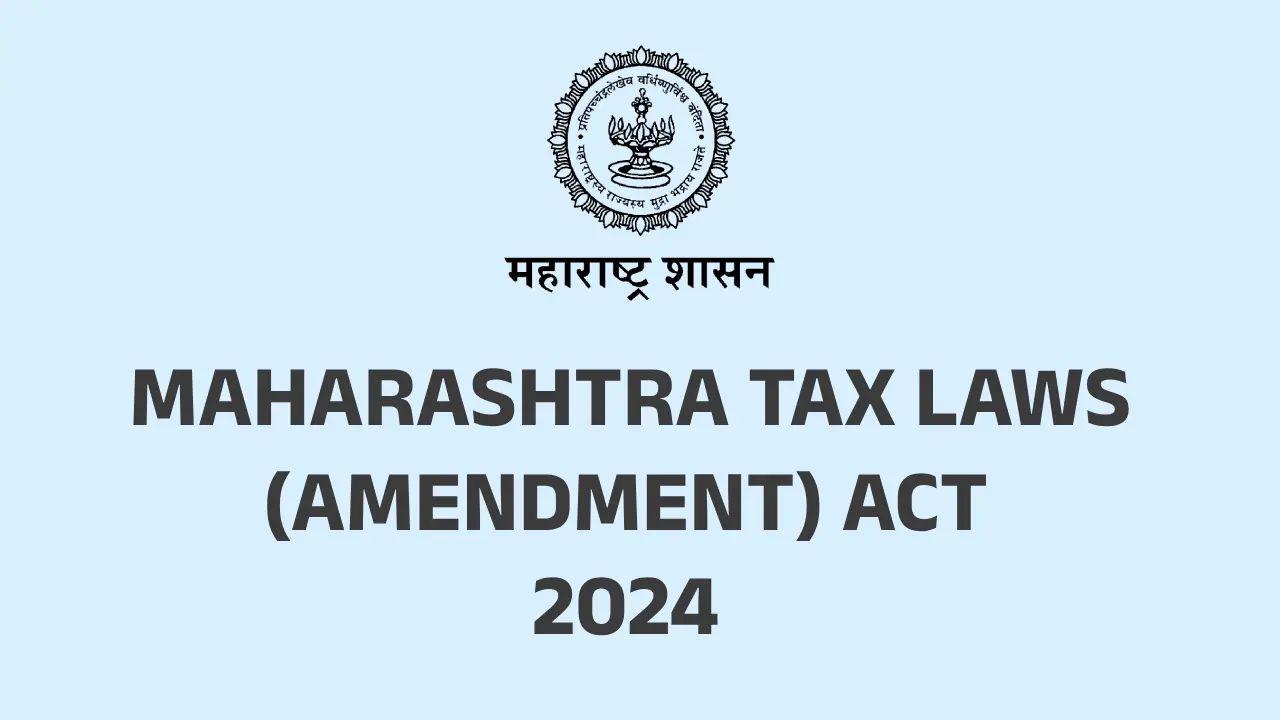Maharashtra’s Tax Laws (Amendment) Act 2024 reduces penalties on deficit stamp duty for registered instruments upon impounding, easing financial burdens for individuals and businesses.
Introduction to the Amendment Act
On July 31, 2024, the Maharashtra Tax Laws (Amendment) Act, 2024, was enacted to revise several tax regulations in Maharashtra. This legislation aimed to implement the proposals outlined in the state’s budget speech for the financial year 2024-25. The Amendment Act primarily focuses on modifications to the Maharashtra Stamp Act, 1958, and the Maharashtra State Tax on Professions, Trades, Callings, and Employments Act, 1975.
Revisions to the Maharashtra Stamp Act
One of the significant changes introduced by the Amendment Act is the reduction of penalties imposed on registered instruments with deficient stamp duty. Under Section 39 of the Maharashtra Stamp Act, the Collector of Stamps holds the authority to determine the stamp duty and applicable penalties for instruments impounded under Sections 33, 33A, or 37 of the Stamp Act.
The process of impounding involves the legal authority or consent of parties to withhold an instrument that is suspected of being insufficiently stamped. The actual stamp duty payable is then ascertained.
Before this amendment, the penalty for insufficiently stamped instruments was set at 2% of the deficient stamp duty for every month or part thereof from the date of the instrument’s execution, with a minimum penalty of INR 100. The Amendment Act distinguishes between registered and unregistered instruments, reducing the penalty for registered instruments from 2% to 1% per month.
Key Changes and Their Impact
For registered instruments impounded by the Collector of Stamps, the penalty on deficit stamp duty now stands at 1% per month, calculated from the date of execution. However, the maximum penalty amount remains capped at twice the deficient stamp duty.
It is important to note that this reduction in penalty applies only when the penalty is determined by the Collector of Stamps. If a registered instrument is impounded by any other authority with the power to receive evidence, the penalty remains unchanged at 2% per month of the deficient stamp duty.
Another significant change introduced by the Amendment Act is the extension of the time limit for filing applications for a stamp duty refund. The period has been increased from six months to one year, providing more flexibility for individuals seeking refunds.
Conclusion: A Step Toward Relief, but More Needed
The amendments to the Maharashtra Stamp Act offer considerable relief to individuals and businesses that inadvertently underpaid stamp duty on registered instruments. However, there remains a need for similar reforms regarding the impounding of registered instruments by authorities other than the Collector of Stamps. These instruments are often reviewed by income tax authorities for assessing tax implications, and a consistent penalty structure would be beneficial.
Now You Can Follow Our Channel On WhatsApp!
